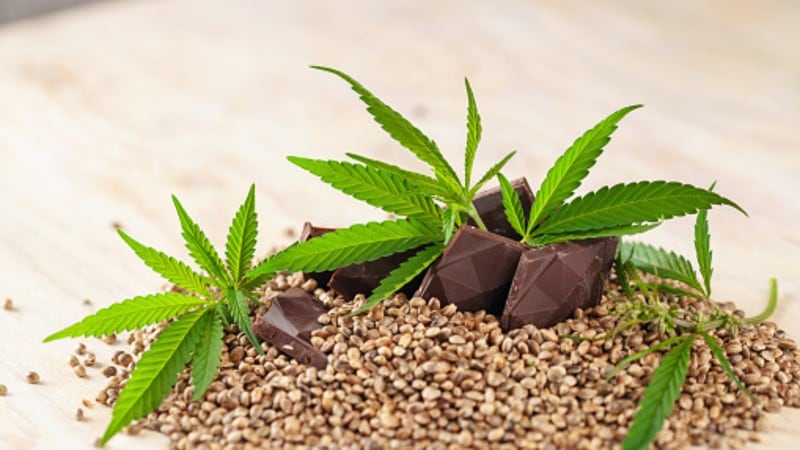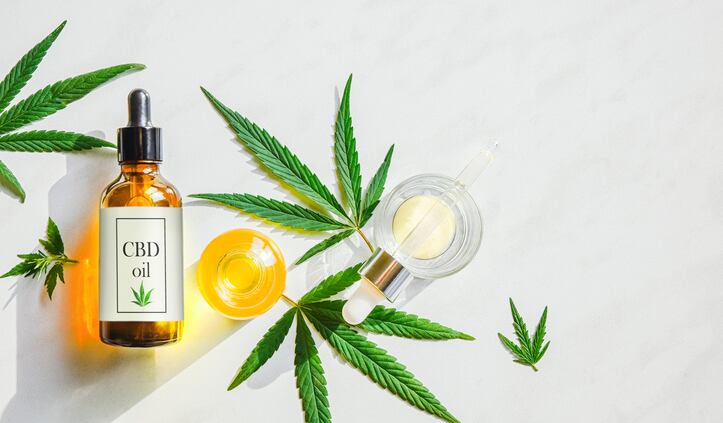Thailand became the first country in South East Asia to formally legalise the use of cannabis for food-related purposes earlier this year.
The Thai Ministry of Public Health (MOPH) announced earlier this month that cannabis and hemp would be delisted from the Category 5 list of narcotics in the Royal Gazette as controlled substances, legalising the planting, importing, consumption and also usage of these for use in food products, as long as the tetrahydrocannabinol (THC) content does not exceed 0.2%.
“The use and distribution of cannabis and hemp will however still be stringently monitored and controlled – we do not intend for these items, particularly if the THC content is over 0.2%, to be used too freely, particularly for recreational purposes,” MOPH said via a press statement.
“Cannabis-containing pre-processed or pre-packaged foods will still be considered to be controlled foods that require pre-approval from the government before any distribution or importation is allowed. In addition to meeting the set quality and permitted THC content standards, cannabis-containing foods need to have attached labels clearly stating the ingredient names, content, relevant warnings as well as consumption recommendations.
“MOPH will also be conducting a survey into the standards for these items to come up with official guidelines, and will be closely monitoring the marketing and advertisements about the benefits of these cannabis-containing food products.”
Thailand’s main hopes in legalising cannabis is for the industry to contribute towards the country’s agricultural and tourism sectors, as well as provide additional job opportunities for locals.
According to Thailand FDS Secretary-General Dr. Paisarn Dunkum, the day of the announcement saw over 150,000 registrations on government application Pluk Kan which was developed by the FDA for the public to register cannabis cultivation activities.
“Thai FDA is currently in the process of issuing the appropriate electronic certificates to successful registrants, and any abuse of these will result in the certifications being revoked,” said Dr Dunkum.
Local news sites also reported that Thailand moved to release over 3,000 prisoners serving sentences related to cannabis and marijuana criminal activity, and MOPH intends to also distribute one million cannabis seedlings to the public this month to promote widespread cultivation.
Problems already emerging
Unfortunately, the Thai government’s enthusiasm seems to mean that not every aspect about the governance of the cannabis industry is as yet in place, including when it comes to the inclusion of this within processed food and beverage items.
Worryingly, a study from Chulalongkorn University has already been discovered that multiple cannabis-containing beverages in the market contain THC levels over the allowed limits, and there is no real intention, regulation or method in place at the moment to govern this.
“With marijuana now being freely used as ingredients in food and beverages, this allows easy access to the general public which includes children and the youth as well - What we might forget is that the substance can still be harmful if consumed in excess [even though] doctors have warned that this can affect children’s physical, mental, and even emotional development,” lead researcher Associate Professor Dr. Kuakarun from Chulalongkorn University
“Our study so far has shown that about 30% of cannabis drinks randomly tested across various categories including coffees, teas, milk drinks and more contain THC levels above that allowed by the law, which is 0.015mg per 100ml.
“The issue is that at present, there is not yet a recommended level of daily THC consumption in Thailand, for instance a number proportionate to a consumer’s weight and how many micrograms they must be careful not to exceed in order to not be affected by side effects.
“Even the shops or businesses selling these cannabis drinks are likely not aware of maximum THC levels per drink, and even if they are, there is not yet any real regulation or inspection, especially when it comes to drinks sold during foodservice as these tend to be made on the spot and the content would likely differ each time.”
These concerns were seconded by Chulalongkorn University’s Faculty of Medicine Dean Chanchai Sittipunt, who added his worries about the lack of immediate regulation.
“"It is a bit late to wait for [the Cannabis and Hemp Act] to be passed [because] right now, anyone can buy and sell cannabis anywhere," he said to Bangkok Post.
Even Thai Prime Minister Prayut Chan-o-cha has voiced worries over the legalisation of the cannabis sector and stressed that this move is not meant for it to be used for recreational or leisure purposes – and hopefully this added pressure will accelerate the development of the country’s formal national cannabis policy and standards for more organised management to be put in place.
The panel for this policy is currently being chaired by MOPH Minister Anutin Charnvirakul, who has also been leading the cannabis legalisation effort.





